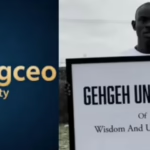Investigation Part I: How Poverty and Corruption Deny Justice to Sexually Abused Children in Lagos
Within the vast urban expanse of Lagos State, Nigeria’s largest city, vulnerable children from impoverished backgrounds who suffer sexual abuse face a compounded injustice. Beyond the trauma of abuse itself, these young victims encounter a justice system plagued by bribery, neglect, and systemic failures that effectively silence their cries for help.
The Double Burden on Lagos’ Most Vulnerable
For many children in Lagos, poverty is not just a backdrop but a barrier to accessing justice. The financial strain on families often means that pursuing legal recourse is out of reach. Meanwhile, corrupt practices within law enforcement and judicial institutions further obstruct the path to accountability. This environment fosters a culture where perpetrators evade punishment, and survivors remain unheard.
Systemic Corruption and Its Impact on Child Protection
Reports indicate that extortion is rampant in the processes designed to protect abused children. Officials tasked with investigating and prosecuting cases frequently demand bribes, causing delays or outright dismissal of cases when families cannot pay. This exploitation exacerbates the trauma experienced by victims and erodes public trust in the justice system.
Current Statistics Highlighting the Crisis
Recent data from child welfare organizations reveal that over 60% of reported sexual abuse cases in Lagos fail to reach prosecution stages, largely due to systemic corruption and resource constraints. Comparatively, cities with stronger child protection frameworks, such as Nairobi and Accra, have seen higher conviction rates, underscoring the urgent need for reform in Lagos.
Community Efforts and the Road Ahead
Despite these challenges, grassroots organizations and advocacy groups in Lagos are mobilizing to support survivors and push for institutional change. Initiatives include legal aid clinics offering pro bono services and awareness campaigns aimed at educating communities about children’s rights and the importance of reporting abuse.
Addressing the intertwined issues of poverty and corruption is essential to ensuring that sexually abused children in Lagos receive the justice and protection they deserve. Without systemic overhaul and increased accountability, these young victims will continue to suffer in silence.

















![INVESTIGATION [I]: In Lagos, poverty, extortion deprive sexually abused children of justice](https://lifeinlagos.com/wp-content/uploads/2025/08/1756024989_INVESTIGATION-I-In-Lagos-poverty-extortion-deprive-sexually-abused-children-768x543.avif)
0 Comments